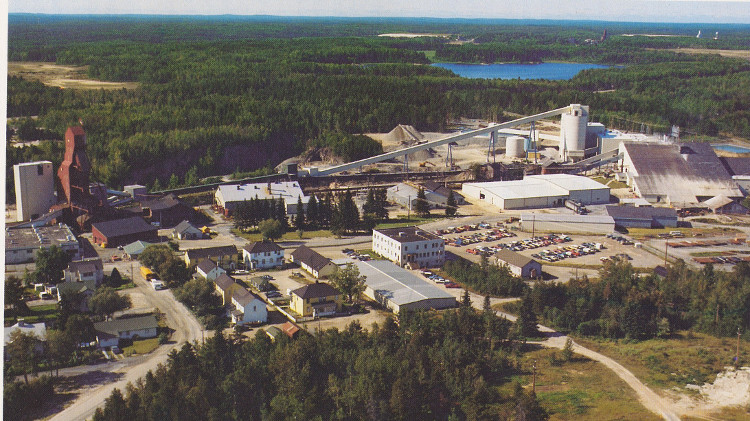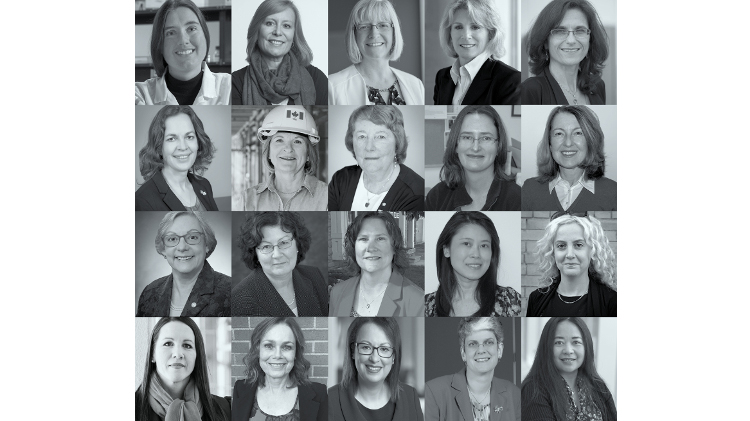The mining industry has established methods and practices for land assessment, management and reclamation. Indigenous communities, however, view these concepts through a different lens, and as they are taking an increasingly active role in industrial development, the task of reconciling these perspectives is a major project in itself. Chief Ronald Ignace understands these issues well. A longstanding chief of the Skeetchestn Band, one of 17 communities that make up the Secwepemc (Shuswap) Nation in British Columbia, Ignace is an expert in Shuswap law, culture and land use. He teaches at Simon Fraser University, and researches ethnoecology and traditional knowledge, as well as the language, culture and laws of the Shuswap Nation.
CIM: What is ethnoecology, and can you talk about your work in this area?
Ignace: My wife, Marianne Ignace, and I conduct a lot of work looking at how we as a people utilize the land sustainably, and how we can apply some of those principles to the lands today. The way the land is being managed today is not sustainable, and it violates the principles of biodiversity. The biodiversity of our ecosystems has been fundamental in sustaining us down through the years because all of that provides us with food, medicine, clothing and lodging.
CIM: You are also an expert in traditional knowledge – can you tell me about that?
Ignace: Traditional knowledge and wisdom. Traditional knowledge is knowledge that you gain from your daily experiences and interactions with other people and nature. Wisdom is the summation of that knowledge, which enables you to look beyond today to predict what may or may not occur if you behave one way or another.
Part of traditional knowledge is our method of enforcing the continuance of biodiversity on the land. A lot of mining is taking place in sensitive areas, in watersheds and sensitive ecosystems. We have to look at how we can moderate impacts and come up with ways to access the resources in a manner that has less impact on the environment.
CIM: How would you describe the relationship between Western science and traditional knowledge?
Ignace: A lot of Western science questions the validity of traditional knowledge. I’ve looked at our traditional knowledge and teased out the factual information embedded in our oral histories, which can be cross-referenced with archaeology, linguistics, climatology et cetera. You can validate and cross-reference our knowledge with Western knowledge and the sciences.
Traditional ecological knowledge needs to be accepted on equal footing with Western scientific knowledge. Unfortunately, in the training that non-native professionals who work in mining, environmental assessment and reclamation get, Western science is hugely privileged, and traditional knowledge is usually a footnote or an afterthought, or ignored altogether. So it’s a matter of training and sensitizing these scientists.
CIM: What role can traditional knowledge play in the way industry manages land and resources? What is lacking if traditional knowledge is not taken into account?
Ignace: One of the problems with Western science is that it privileges itself as being objective. Whereas we, as indigenous people with traditional knowledge, see ourselves as embedded in the science, in the knowledge. We’re not separated from it. The people who do environmental assessments to begin developing a mine don’t know the land, or the culture or the history of the area. They know the geology, the archaeology, but it’s not interconnected.
Western science believes that all things not human are basically inanimate and that people are above and lord over all things non-human. Whereas we Natives believe we are integral to the Earth, and that all things are animate. When we interact with nature, we transform nature, and in turn nature transforms us. We have a dialectical relationship with nature, and there is a reciprocal accountability that we have to be mindful of.
In our traditional knowledge, everything is alive, everything has a spirit. There’s no such thing as an inanimate object. It bothers me when I hear people talking about salmon, which are considered our relatives, as pieces of fish. It’s an objectification. Or they talk about wood pulp as fiber rather than trees. That kind of objectification gives you a whole different philosophical approach to dealing with trees. And trees are our relatives as well. They look after us and clothe us and give us their breath, and we exchange our breath with them. That’s one of the fundamental laws and principles in Shuswap country: reciprocity. What someone does for you, you do for them. Industry needs to change its view about the resources on the land. Objectification leads to people becoming desensitized about the impact that they’re making on the land.
CIM: Western science also looks at biodiversity and the interconnections of ecosystems. Is this the same principle?
Ignace: It’s commendable that they have that type of approach, but there’s still a latent philosophy of privileged position over the land and over indigenous knowledge, which makes it difficult to look at and interact with the land properly.
CIM: Can traditional knowledge also learn from Western science?
Ignace: We’re always open to learning. We need to adopt a strategy of what I call ‘walking on two legs’: We have to be mindful of Western sciences and technologies, but what has to override and guide that is our traditional knowledge and practices. There are ways that we can benefit from Western science, but they also can benefit from our knowledge. And if we can figure out a way to combine our knowledge, I think we can do great things.
CIM: What would it look like to have industry sit down to exchange ideas with traditional knowledge holders?
Ignace: When people want to open up a mine, they ought to come to the indigenous group that’s going to be impacted and sit down with them, and find out their connection to the land, their knowledge of the land, the water, the environment. But they don’t do that. We have to fight our way in, to bring that knowledge forward, and that ought not to be the case.
A company ought to ask, ‘Who has traditional knowledge and can inform us about the land that we’re about to develop?’ People need to listen to us. And if they want our confidence, we need to have their ear, and they need to believe in us, and work with us. We have to be engaged. We have to be involved.
We have a relationship with the land. The land has stories and history. Our history is embedded in the land. So if you destroy a huge swath of land through open-pit mining, you rip up and destroy that history and our connection with that land.
CIM: Does industry need to take into account the diversity of traditional knowledge among different indigenous communities?
Ignace: Each nation has their own history, traditions, culture, beliefs, their understanding of the land, and they have to be taken at their word for that. As Shuswap indigenous people here in B.C., we have accumulated and synthesized 10,000 years of experience and knowledge of the land and its resources.
CIM: What is the Shuswap Nation’s approach to industry?
Ignace: In 1910 our chiefs told the prime minister of Canada, Sir Wilfred Laurier, how we would operate on the land with the new settlers. Although they were uninvited, we would be brothers to them, and we would share our resources with them. What is ours would be theirs, and what’s theirs will be ours. We would help each other to be great and good. That’s the foundation, the principle that I operate on: How we can work with these people, to help each other be great and good. I think that’s very generous and very open.
There’s a great opportunity to create lasting and positive relations. There are ways and means. We want to work with Canada. We want to work with industry. We want harmonious relations. But there are rules and regulations and principles for the way that ought to take place. And the way it’s done right now is through imposition. And no one likes to be imposed upon.



